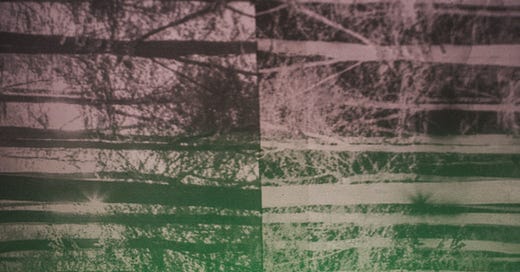In 2012, I dropped out of my Ph.D. program with a heavy heart and self-esteem in tatters. Before my flight home to California, Hurricane Sandy hit New York City. It is a special brand of surreal, watching a city you love get torn apart when your heart is breaking to leave it.
Don’t worry, I made the right choice. It was the only one to make; I could no longer do my job.
Being an art history graduate student is a kooky choice for most people. But for an eldest daughter of hard-working immigrants with a house painting business? It’s wildly reckless and borderline disrespectful.
But as a clinically idealistic human, working in corporate America for two years made me want to peel my skin off in sheets. So I quit and followed my heart, trusting a quiet voice inside: There is something waiting for you. Go and see.
I ended up at one of the most “elite” institutions where you can study art history and archaeology. A disproportionate number of my colleagues hold the few and coveted positions in the museum world. They are empathetic, thoughtful people and I’m proud to have studied beside them and know them.
A humanities grad student’s job is to read, think, and write. I struggled to do this in the hardcore environment of my school. It was a Neoclassical, Gilded Age mansion on the Upper East Side that people dryly nicknamed The Institute; I worked with professors who were some of the brightest minds in The Discipline; they’ve written things that are squarely positioned in The Canon; the fact that people regularly refer to The Discipline and The Canon.
How I developed impostor syndrome
I went to class and did the readings. Feeling dumb and inadequate quickly became normal. In retrospect, I read a lot of academic writing that was rambling, pretentious, and often plain bad. There were lots of vague, made-up noun-concepts (“methodological tautology”) and references to The Great Dead White Dudes and Their Impenetrable Theories.
At the time, I thought this opaque stuff was “good writing”. So, I mimicked it by eking out my own overwrought, Ivory Tower garbage. Surrounded by “masterful works of theory” and “trenchant visual analysis”, I psyched myself out trying to be “brilliant”. Soon, the thought of writing filled me with dread.
I got really lost, valuing others’ minds more than my own.
My mental health took hit after hit. After nearly four years of my sensitive nature crashing into lack of nurture, I needed to leave.
What we misunderstand about impostor syndrome
For years afterward, I thought my problem was not being good enough, not doing enough.
The truth is I was doing too much, and it was coming from the wrong place: fear. I was stuck in a cycle of:
comparing myself to other people
mimicking someone else’s voice and style
shutting down my authentic curiosities
ignoring my intuition
distrusting myself
If fear is the fuel in your tank, it doesn’t matter how far you drive. It will never be enough.
How to recover from impostor syndrome
It took me years to understand impostor syndrome better, and the understanding deepens every year. This psychological state has a very serious name, and it touches every one of my clients in one way or another.
How did it begin for me? Why did I go to grad school in the first place?
Simple: I love art history. Always have. I love that starting with the cave painters of Lascaux all the way to Japanese contemporary artist Yayoi Kusama, art history tells the story of humans making beauty and meaning out of what they can find.
I’ve learned creativity is a drive we all have, rather than a gift some are given. The wars waged in art history are mostly against social and artistic norms. It features colorful characters, events and unanswerable questions that I want to spend time with.
I can’t say I’m fully cured of impostor syndrome. But I am so fortunate to work from a place of love every day. It’s the best preventative care I know of.
Creativity has a stable of dark horses. It includes your inner critic and comparing your insides to other people’s social media accounts. Don’t let them run amok.
Once upon a time, pure love brought you to your craft. Things will feel right again when you fall back in love and create from that place. Steep your work in wonder, appreciation and curiosity. Transport us.
You can’t be an impostor when you’re truly being yourself.
This is an essay I wrote in 2016, with significant updates and re-structuring. Many thanks to
for helping me meet its new version.





“If fear is the fuel in your tank, it doesn’t matter how far you drive. It will never be enough.” So true.
If love is the fuel in your tank, it won’t matter where you go. You’ll always be where you belong.